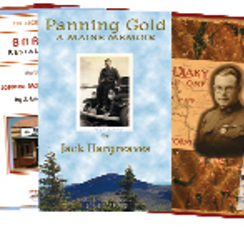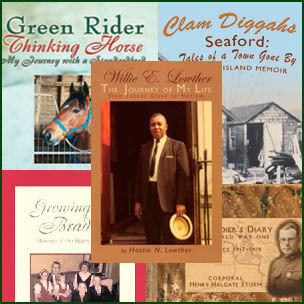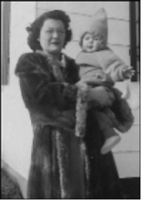Denis Ledoux's Blog, page 49
April 12, 2018
Don’t Let A TV Talk Show Host Get You – Three Ways a Memoir Content Editor Can Improve Your Memoir

Is this the future you want? You’ve done a whole lot of writing and now you have published your book. You are very proud of your effort—not the least of which has been the marketing that has gotten you on a TV talk show!
As the camera is focused on you, the hostess who had seemed so disarmingly charming just a few moments ago turns out to be a barracuda circling her prey! You squirm and fidget. You...
April 10, 2018
4 Tips for Saving Money With a Ghostwriter

Working with a ghostwriter can be exhilarating-and expensive, but never as expensive as losing your story because you did not write it. Here are some components that will go a long way in saving money with a ghostwriter.
When you choose to work with a ghostwriter, it is understandable that you would ask yourself how costly the process will be. This is a service that you are paying for after all. You are likely to want to involve yourself with con...
April 2, 2018
Ten Tips on How to Publish Your Own Book

You have finished writing your memoir or are nearing its completion. Now you begin to think about publication. Going the route of finding an agent and waiting years for your book to be accepted does not appeal to you. You decide to publish your own book—a realistic option in this day and age.
To help you, let me offer you ten tips to make the process by which you publish your own book easier.
1) If you want to reach a larger audience than family and friends, your ind...
March 29, 2018
Organize Your Memoir: Life Phases

Life phases are one way in which you can organize your memoir. Life phases are the emotional and psychological cycles or phases that have marked your life.
Every life proceeds in irregular and unpredictable phases. We can go along with our lives for a long time without much change, thinking that we have arrived at a resolution of the great “who am I?” question, and then unpredictably and perhaps quickly find ourselves dealing with totally different em...
March 20, 2018
Photos in Your Memoir Book Layout

Where you place photos in your memoir book layout is important.
While it may seem obvious, it bears repeating that where you place photos in your memoir book layout is important. It will influence how readers appreciate your story. The only way I can grasp that makes sense is to place photos chronologically within the text. Why?
First, a bit of book-writing talk. There is in reading and writing a phenomenon called “suspension of disbelief.” If I as the reader am constantly saying “This is...
March 19, 2018
3 Suggestions For Choosing the Right Publication Option For You

You have finished writing your memoir or are nearing its completion. You feel satisfied with the text. It has been edited by a professional and you have made changes, You are ready for the next step. You are ready to be published. But what is the right publication option for you?
Congratulations!
Now, your task is to decide how to best send it out into the world—that’s what publishing a book comes down to it: making your memoir public after all t...
March 16, 2018
Point of View in a Memoir, Part 2

What is the importance of point of view in a memoir? In the previous post on point of view, I shared my challenge of trying to write material in a ghostwritten memoir that I knew to be true but which the subject was not forthcoming with. This is not “Truth” material. It is more the sort of reflection that a more intuitive, self-reflecting person might make to cast light on her/his life. The memoir in question is We Were Not Spoiled, a memoir I co...
March 15, 2018
Point of View in a Memoir, Part 1

This is the first of several articles on point of view.
I recently completed my mother’s memoir, We Were not Spoiled. It was a work of love that took me many years to bring to closure as I had other work to do to support myself that filled my days. Finally, she got to be quite a bit older, and beginning to feel urgency as many people do when in my position, I put the push on finishing her story.
I’ll be sharing with you in the next few blog entries my...
March 14, 2018
Tips For not Writing a Chronology.

Dates and facts are necessary to life writing in the same way route numbers are necessary to maps. It’s not only that dates and facts provide interesting information but that they keep your readers on the right path as they make their way through your life story. So…
Writing a chronology is already a great contribution to your family story, but you can do so much more than just include the dates and facts.
1) You can try writing a chronology and cal...March 13, 2018
Passive Vs Active Voice

Generally speaking, the passive voice of the verb (the subject has the action done to it) is weaker than the active voice (the subject does the action) in involving the reader in your story. That is crucial because as a memoir writer you are not sharing ideas but recreating life experiences to share. In the passive vs active voice, favor the active.
“Mary baked a cake” is active. Mary, the subject of the verb baked, is doing the actio...



